
Jupiterimages/Pixland/Getty Images
It's probably happened to everybody at least once--you go on a trip and forget your razor, or you turn on the shower and discover that your last razor is ready for the trash can. Many people in this situation might share an electric razor. This is convenient, but it also has some hazards.
Disease
The spreading of disease is the biggest concern with sharing any type of razor, electric or otherwise. The Centers for Disease Control cautions against this practice because razors cause microscopic cuts in the skin as they remove hair. You may not be able to feel these nicks, but they are large enough to allow viruses into the skin. In particular, blood-borne diseases, such as HIV and hepatitis, are the largest concerns.
Razor Burn
When you use an electric razor, you hold it at an angle that is appropriate for you. This angle isn't necessarily the same angle that works for someone else. The change in angle, in addition to the simple cutting requirement, can dull the blades of the electric razor. The duller the blade, the more at risk you are for nicks and cuts. Duller blades also lead to razor burn. Razor burn happens when the blades of the razor don't make an extremely clean cut, scraping and pulling on the skin and hair instead. The hair follicles and pores become inflamed as they try to deal with the injury, or the hairs become ingrown because of how they were pulled or curled by the blades.
Bacteria
Even if the person who owns the electric razor you're using practices excellent hygiene, razors scrape off dirt, dead cells and other gunk that builds up on your skin. Electric razors may be dirtier than disposable razors because electric razors, simply because they are electric, aren't really intended to be washed and sterilized in the same way regular razors are. Some electric-razor heads are designed so it's almost impossible to clean all the crevices. When you share an electric razor, everything that is built up on the blades can be transferred to your own skin, leaving you open to bacterial and fungal infections. Even if you don't get an infection, you still are transferring material to your skin, leaving it less clean than it could be.
Related Articles

How to Get Rid of Aftershave Allergies
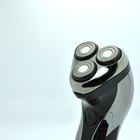
How to Shave With an Electric Razor
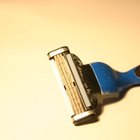
How to Use Noxzema for Shaving

How to Take Care of an Eyebrow Piercing

How to Avoid Cutting Yourself While ...

Why Is it Important to Practice Proper ...

How to Use Wet/Dry Shavers
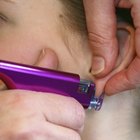
What Size Gauge Is an Ear Piercing Gun?

How to Clean & Sterilize Hair Clippers
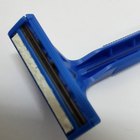
Glycolic Acid & Razor Bumps

How to Shave Leg Stubble

How to Get a Closer Electric Shave
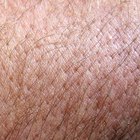
How to Remove an Ingrown Hair ...
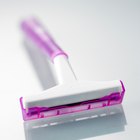
How to Shave your Pubic Hair (For Women)

How to Clear Up Red Bikini Line Bumps

How to Prevent Underarm Bumps

How to Use Foot Shavers
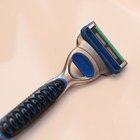
How to Clean a Shaving Razor

How Does a Razor Work?
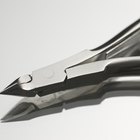
How to Sharpen Nail Nippers
References
Writer Bio
Wanda Thibodeaux is a freelance writer and editor based in Eagan, Minn. She has been published in both print and Web publications and has written on everything from fly fishing to parenting. She currently works through her business website, Takingdictation.com, which functions globally and welcomes new clients.
Photo Credits
Jupiterimages/Pixland/Getty Images